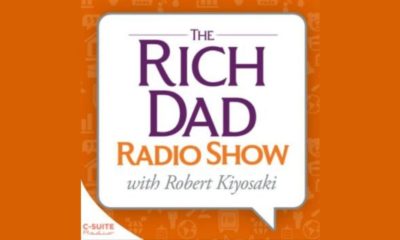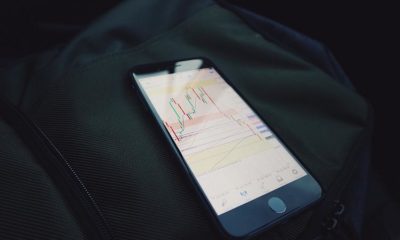Economy
Miami’s Real Estate Market Goes to a Meltdown
The writing’s on the wall: Miami’s real estate market is nearing a meltdown.

The writing's on the wall: Miami's real estate market is nearing a meltdown.
Kyle Munzenrieder — in his article “Yet more evidence Miami's real estate boom is slowing” — reported, “According to brokerage firm Douglas Elliman's data from the first quarter of 2016, sales in both the once-hot markets of Miami's urban core and Miami Beach have fallen off significantly since last 2015.”
The Douglas Elliman report revealed that in the Miami Beach area, sales volume fell 21 percent from the same quarter in 2015. This drop is reflected in the current median price of Miami Beach properties, which is $408,750 — down from $437,750 in 2015.
Munzenrieder pointed out, “Expect prices to go drop even more, because real-estate inventory on the Beach has soared at the same time. There was a 33 percent uptick in units on the market, which translates to 21.5 months' worth of supply.”
Real Estate Reality Bites
If the said percentages don't convince you that the Miami real estate market is in for a challenging year, the number of days that an average home sits on the market may do it. The waiting period has gone up from 53 days to 97 days. This way past the so-called “panic period” cited by most real estate agents, which is around 30 days.
“The problem slowing down today’s cycle is simple: plummeting foreign currencies are hurting Latin American and European buyers. Those buyers have been driving a boom that launched in 2011 when the dollar was weak,” observed Nicholas Nehamas in his Miami Herald feature, “Miami's downtown building boom drawing to a close.”
Foreign Component
A closer look at some pertinent statistics reveal just how crucial foreign buyers are to Miami's real estate industry.
New Home Sales Status Today –> https://t.co/YWQNzLPeuw pic.twitter.com/MDXkgsQ1u9
— The Capitalist (@Capitalist_Site) April 28, 2016
“According to the 2015 Profile of International Home Buyers for the Southeast Florida market, conducted by the Miami Association of Realtors and the National Association of Realtors (NAR), foreign real estate buyers accounted for 36 percent or $6.1 billion of total sales volume of the Miami and South Florida real estate market,” reported Michael Gerrity in the World Property Journal.
Most foreign buyers of Miami real estate came from Brazil, Venezuela, Argentina, Colombia, Canada, Mexico, France, and Italy.
Foreign buyers paid more for properties ($590,000 on the average) compared to domestic buyers ($329,869 on the average). They preferred the pricey condominiums and properties in the central or urban areas. Most of them also made all-cash transactions.
However, Munzenrieder — echoing Nehamas' observation — explained, “Volatility in South American markets and a strong U.S. dollar have dried up the once-bountiful supply of foreign buyers. Meanwhile, local developers have struggled to find a replacement well of potential new condo buyers.” In fact, some developers have canceled condo projects slated for downtown.
“Many Latin American buyers who have already put down deposits are choking on the additional costs of the stronger dollar and the difficulty of moving money into the U.S.,” revealed Philip Spiegelman of the International Sales Group — a pre-construction marketing and sales firm — to the Miami Herald.
Spiegelman added, “We see this as the market taking a breather while people adjust to the new situation.”
Silver Lining
Miami's loss, though, has favored nearby communities.
Jonathan Miller, president and CEO of Miller Samuel, told CNBC that “retirees and families increasingly find better value and a quieter lifestyle in Boca Raton, Fort Lauderdale, and Palm Beach.” Those three markets, Miller said, “tend to be less dependent on foreign buyers.”
He said, “Of all the major markets right now in [southern Florida], Boca is the leader. I think it's an area that's less correlated to the foreign buyers and in Boca, the high end of the market is performing as well right now as the broader market.”
Going Through the Cycle
Then again, sometimes all that you need to do to recover in the real estate market is to wait it out.
In October 2015, Peter Zalewski — a South Florida-based condo market analyst — told the Miami Herald, “Generally a real estate cycle is going to last between seven and 10 years. We’re effectively entering the fifth year of this cycle.”
Zalewski went on to explain,”You've got the pent-up demand, then you build it, then you deliver it, then you realize you built too much and then you have the hangover where properties are discounted and buyers gain an advantage. Once it's cleaned up again, then you get the next cycle.”
[buffet_recommended]
Real estate experts are likewise confident that while the market will suffer a meltdown, it will descend into a complete crash. “No one is expecting anything like the chaos of the last crash when Miami's housing market hit rock bottom and imploded in 2009,” said Nehamas.
That said, it's just a question of how long real estate players can afford to wait or how much heat they can stand during a so-called meltdown.
Meanwhile, those who are thinking of buying real estate in Miami at this time could use Munzenrieder's tip. “If you've ever dreamed of buying a place on Miami Beach, it's time to at least keep an eye out. But don't rush. Conditions may become even more favorable for buyers in the near future. Major price adjustments usually take place a little while after signs of a slowdown,” he said.















